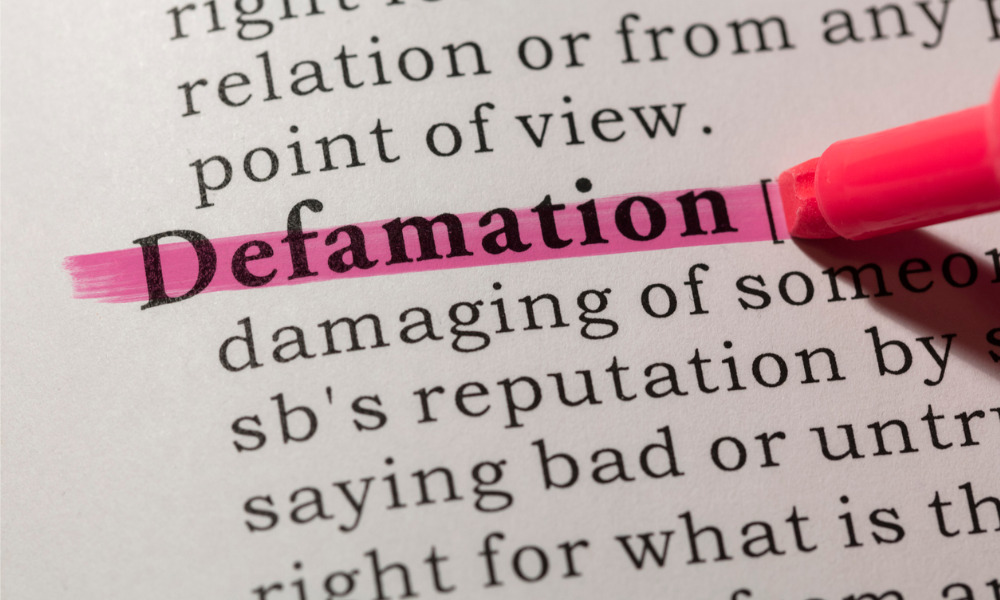When you feel that you’ve been offended or discredited because of wrongful publicity, a social media post, or a news article, filing or suing for defamation may be the first thing that crosses your mind. This article will provide a general overview and the legal considerations if you can sue for defamation in Canada.
What is defamation in Canada?
As a general rule, the Canadian Charter of Rights and Freedoms under the Constitution Act protects the freedom of speech and freedom of the press. However, this rule is not absolute. Canadian legislation also provides for the circumstances and acts which are not covered by these freedoms such as when a person or an entity commits defamation.
In Canada, defamation is governed by the Criminal Code and the common law on torts, libel, slander, and defamation. It governs all provinces and territories in Canada, except for the province of Québec where its Civil Code provisions on defamation prevails. Some provinces also enacted their own provincial legislations on defamation, libel, or slander.
Recent Articles
Under Canadian law, libel and slander are forms of defamation. In other jurisdictions, libel refers to defamation through printed materials or publications, while slander is spoken or verbal defamation.
Defamation under the Criminal Code
So can you sue for defamation in Canada? Before taking any action, check with your lawyer if the alleged act falls within defamation under the Criminal Code.
Defamatory libel under the Criminal Code is defined as the publishing of any matter that will likely cause injury to a person by exposing them to hatred, contempt, or ridicule (section 298). Under the same provision, a published matter intended to insult a person will also fall under defamatory libel.
There are various modes where defamatory libel may be done: direct publication, insinuation, or through ironies.
Defamation under Common Law
Another legal basis in suing for defamation in Canada is common law or the decisions of the Supreme Court regarding defamatory libel. As such, you must assess these various common law principles if you’re planning to sue for defamation in Canada.
Grant v Torstar Corporation, 2009 SCC 61
In the case of Grant v Torstar Corporation, the court explained that it is the plaintiff who has the burden of proof or the onus in proving that defamatory libel has been committed. This must be proved according to the elements of defamatory libel, which are explained further below.
The Supreme Court also established the defense of “responsible communication” which provides for a defense for journalists who are being sued for defamation in Canada.
Under this defense, journalists are allowed to report false information if:
- the news is of public interest
- it is breaking news at that time
- reasonable and diligent efforts were made to verify the information
Aside from the “responsible communication” defense, the Grant case also provided for other defenses that the defendant may set up in a case for defamation, such as:
- justification
- fair comment
- qualified privilege
- absolute privilege
WIC Radio v Simpson, 2008 SCC 40
In relation to the “fair comment” defense, the case of WIC Radio v Simpson provided further guidance on its use when the defendant is sued for defamation in Canada. In this case, the Supreme Court held that there is a valid “fair comment” defense when the comment is:
- a matter of public interest;
- based on facts;
- recognizable as a commentary; and
- free from actual or express malice.
Hill v Church of Scientology of Toronto, 2 SCR 1130
The case of Hill v Church of Scientology of Toronto provided for several principles for when you can sue for defamation in Canada.
One is that the plaintiff does not have to prove malicious intent on the part of the defendant, where the Supreme Court refused to follow the “actual malice standard” which is prevalent in the United States.
Another principle is that the plaintiff may be awarded general damages, aggravated damages, punitive damages, and permanent injunction against the defendant, as applied in this case.
Provincial Legislations on Defamation
You can sue for defamation in Canada if your province has legislation governing defamation, slander, or libel. Some of these provincial legislations on defamation are the following:
- Ontario: Libel and Slander Act
- British Columbia: Libel and Slander Act
- Alberta: Defamation Act
Québec’s Civil Code provisions, such as Article 1457 of the Code, is another legal basis for filing a case of defamation in this province. For more details, you may consult with a Lexpert top-ranked defamation and media litigation lawyer in Québec.
How can you sue for defamation in Canada and win?
When you sue for defamation in Canada, there are three main elements of defamation that you should consider:
- that the published material is defamatory
- that the published defamatory material refers to the plaintiff
- that the defamatory material was published for the public or for people other than the plaintiff
The published material is defamatory
As to the first element, you must prove to the court that the published material is defamatory by showing that it affected your reputation or your social standing. The appropriate standard must be based on the viewpoint of a common, right-minded person. You may also prove that the publication was defamatory when it was intended to insult you or to expose you to hatred, contempt, or ridicule.
The published defamatory material refers to the plaintiff (you)
For the second element, it must be proven that the published defamatory material was clearly referring to you, and not to any other person.
If the publication refers to the organization or group you represent or is mainly affiliated with you, it must be proven that it is directed at you and not to the organization or the group.
The defamatory material was published for the public or for people other than the plaintiff
Lastly, you must present evidence that the defamatory material was published publicly. Under the Criminal Code, a defamatory libel is published publicly when (section 299):
- the defendant exhibits it in public; or
- the defendant causes it to be publicly heard or seen; or
- the defendant shows or delivers it to any other person/s, aside from the person being referred to in the publication.
Still wondering if you can sue for defamation in Canada? Consult with the best defamation and media litigation lawyers in Canada for an assessment of your claims.





